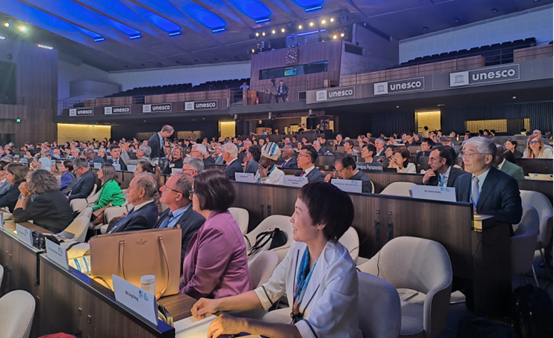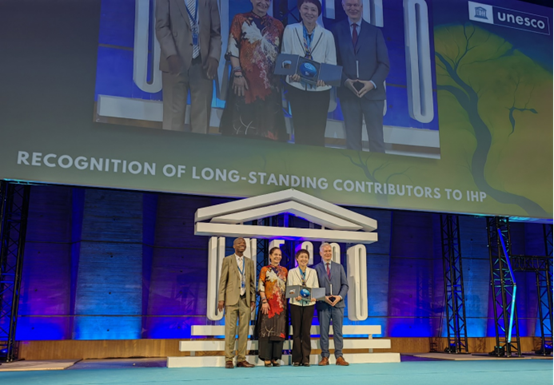
UNESCO Intergovernmental Hydrological Programme holed its
50th anniversary from 1013 June 2025, with panel discussions and performances
at UNESCO HQ in Paris.
Water science and management are key pillars of UNESCO’s
mandate for sustainable development, covering vital aspects of human wellbeing
and environmental protection. UNESCO’s broad approach spans areas such as
groundwater assessment and drought monitoring, supporting improved water resource
management at local and transboundary levels. UNESCO Intergovernmental Hydrological
Programme (IHP) is the main vehicle for addressing today’s water challenges,
drawing on a wide network of experts and specialized centres.
As the United Nations' sole intergovernmental programme
dedicated to water research and management, IHP facilitates international
cooperation on water-related challenges. Following its establishment in 1975,
subsequent to the International Hydrological Decade, the programme has
undergone significant evolution, transitioning from a focused hydrological
science initiative to a comprehensive, integrated, and transdisciplinary water
sciences programme. The programme's operational framework encompasses 29 water-related
Centres, 93 UNESCO water-related Chairs, and 170 National Committees and 17
Flagship Initiatives, facilitating effective knowledge transfer between
scientific research and practical implementation.
Audrey Azoulay, DirectorGeneral of UNESCO, and others
attended the highlevel event and delivered opening remarks. Leaders from
relevant UN agencies, more than 10 national ministries, presidents of
international organizations, members of the UNESCO water family, and members of
the global water science community attended the meeting. Mr. Liu Zhiyu, Director General of the Department of Hydrology of
the Ministry of Water Resources, Prof. Peng Jing, Director of the International
Research and Training Center on Erosion and Sedimentation, President of the
China Institute of Water Resources and Hydropower Research attended the
meeting.
In the opening session, Ms. Audrey Azoulay, Director General
of UNESCO, and Mr. Sirojiddin Muhriddin, Minister of Foreign Affairs of
Tajikistan, delivered opening remarks, emphasizing the common water challenges
facing the globe, stressing the important role of UNESCO IHP as a platform for
solving water issues and advancing the water-related goals of the United
Nations Sustainable Development Agenda, and discussing future water development
strategies and cooperation. The Ministerial Roundtable was held on the theme of
Water.
The theme of the Ministerial Round Table was “Water Science:
For Life, Prosperity and Peace”. Ministerial guests and delegates made
presentations on the important role of UNESCO IHP in the field of water and the
relevant water strategies in their countries.
The
conference presented the UNESCO IHP LongTerm Outstanding Contribution Award,
and the International Research and Training Center on Erosion and Sedimentation,
as the first UNESCO category 2 center in the world, received the award.


